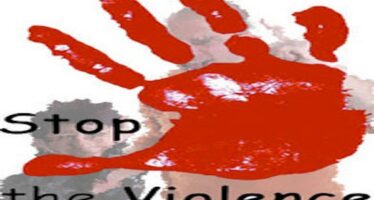Croatia urged to speed up war crimes prosecutions
![]()
 Sibenik village in northern Croatia was almost totally destroyed by the war © AI
Sibenik village in northern Croatia was almost totally destroyed by the war © AI
The Croatian authorities should speed up the prosecution of war crimes suspects and make it their top priority, Amnesty International has said in a report published today.
Behind a wall of silence: Prosecution of war crimes in Croatia, shows how the country’s justice system is failing to provide many of the victims of the 1991-1995 war with justice amid continued delays, threats against witnesses and concerns over standards.
Government statistics currently indicate that on average 18 war crimes cases are concluded each year. With almost 700 cases yet to be prosecuted, most of those responsible may never face trial.
“People need to know the truth about events from the recent past that have marred the lives of many. Victims and their families need justice. It is the responsibility of the Croatian authorities to deliver both,” said Nicola Duckworth, Europe and Central Asia Programme Director.
“The authorities have the support of the international community, however despite the often declared commitment by officials to deal with impunity for war crimes and despite progress in some areas justice has been slow in coming and very selective.”
Crucial concepts such as command responsibility, war crimes of sexual violence and crimes against humanity are also not defined in national law in accordance with international standards. This results in impunity for many of the crimes.
The overwhelming majority of war crimes proceedings in Croatia take place before county courts, where trial panels are rarely formed exclusively of criminal judges, and panel judges all too often lack sufficient expertise in international criminal law and other relevant international standards.
Witnesses in war crimes proceedings continue to face intimidation and threats. County courts do not have the basic facilities to provide witness support and protection.
Prosecutions of war crimes in the period of 2005-2009, on which this report focuses, have disproportionately targeted Croatian Serbs who were the accused in nearly 76 per cent of all cases.
At the same time, despite the existence of publicly available information, including evidence from public court proceedings in Croatia, allegations against some high profile military and political officials have not been investigated.
The allegations are detailed more fully in the report, but examples include Vladimir Šeks, Deputy-Chairman of the Croatian Parliament, who is alleged to have been involved in crimes committed in Osijek in 1991.
General Davor Domazet-Lošo, who was identified in a trial judgment as, effectively being in command of the 1993 military operation in Medak Pocket, and Tomislav Mer?ep, a war time Assistant Minister of the Interior and reportedly under investigation by the International Criminal Tribunal for the former Yugoslavia, have also so far also escaped thorough, independent and impartial investigations for similar allegations.
While some people indicted for war crimes continue to enjoy state support, many victims of war crimes are denied access to reparation.
“War crimes have no ethnicity. They affect people regardless of their origin and the perpetrators must be prosecuted regardless of their ethnicity or their social position,” Nicola Duckworth said.
Amnesty International calls on the Croatian authorities to bring the country’s legislation in line with international standards; develop a state strategy for prosecution of war crimes cases and bring to justice all those, including senior officials, allegedly responsible for committing crimes during the 1991-1995 war.
“Many of the failings of the Croatian justice system may result in large part from a lack of political will to deal with the legacy of the war,” Nicola Duckworth said.
“Croatia must deal with its past in order to move forward. Impunity for war crimes is a stumbling block towards membership in the European Union. By removing it, the authorities will prove that the country is unequivocally on a path that closes the gaps in delivering justice. The victims expect, and deserve, no less.”
Croatia’s declaration of independence from the Socialist Federal Republic of Yugoslavia in June 1991 was followed by an armed conflict between the Croatian Army and Croatian Serb armed forces, aided by the Yugoslav People’s Army, which ended in 1995.
During the 1991-1995 conflict, massive and serious human rights violations were perpetrated by both sides such as arbitrary killings, torture including rape, enforced disappearances, arbitrary detention and forcible expulsions; hundreds of thousands of people became refugees abroad or internally displaced.
Since the early stages of the conflict, Amnesty International has been campaigning against impunity for war crimes committed in Croatia and elsewhere during the wars that accompanied the disintegration of Yugoslavia.
Related Articles
The Agony and the Irony of Guantanamo’s Mass Hunger Strike
![]()
[Force feeding restraint chair. Image by Jason Leopold.] The executive order pledging to close Guantánamo within a year, signed
Domestic violence increases at weekends
![]()
According to a report prepared by a subcommittee of the Parliamentary Commission on Equal Opportunity for Women and Men said
Breeding terror in Guantanamo?
![]()
Guantanamo detainees have subjugated to various methods of torture and as a result, the facility has been described as a



